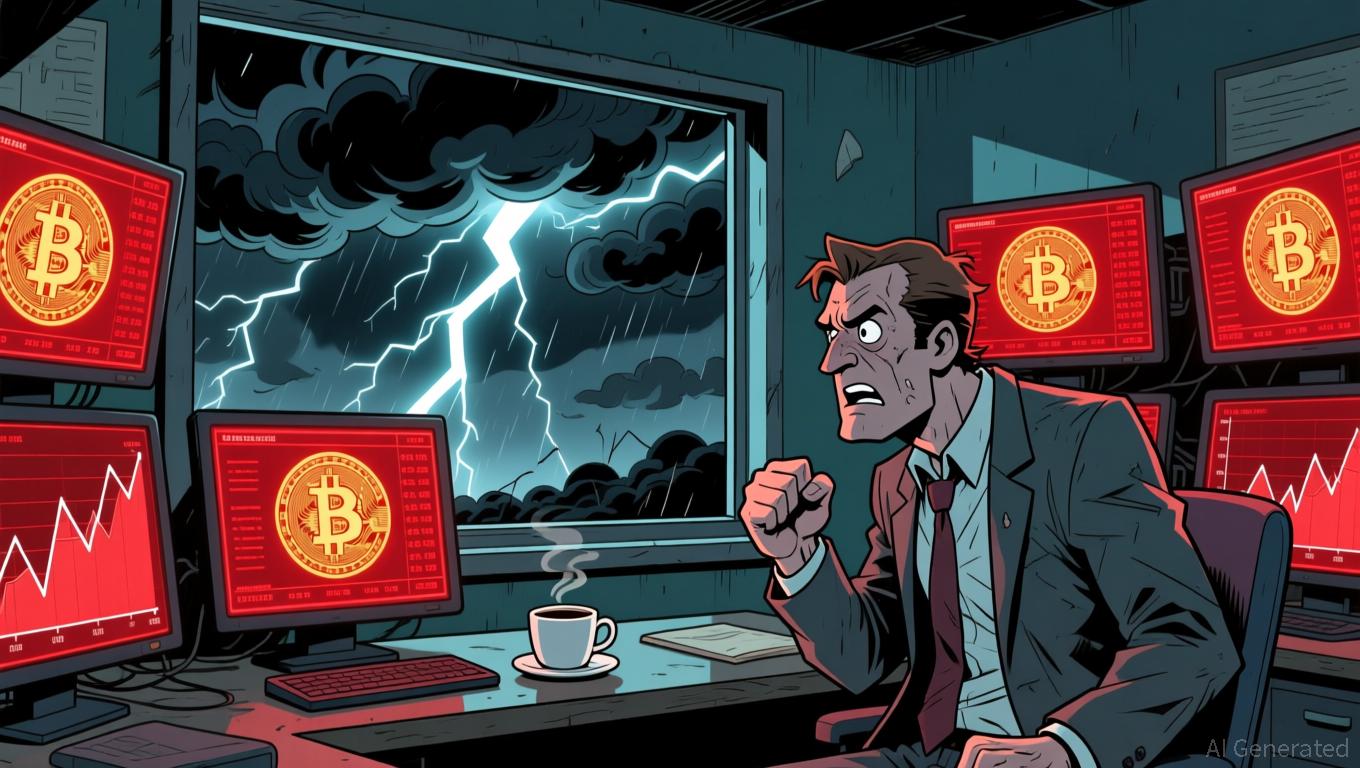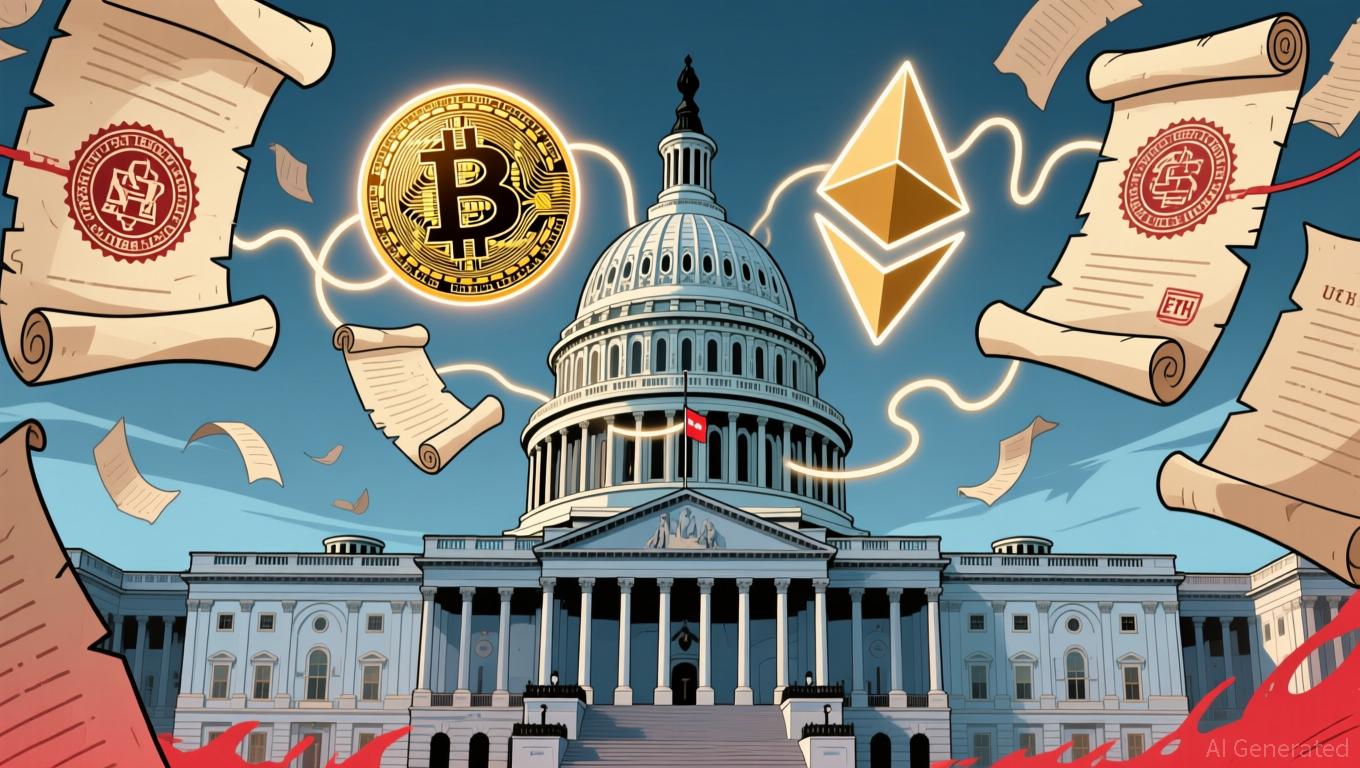Bitcoin News Update: How Bitcoin is Transforming Banking—Institutions Tap into the Power of a Versatile Asset
- Anchorage Digital and Mezo partner to offer institutional-grade Bitcoin solutions, enabling yield generation and liquidity via veBTC and MUSD stablecoin. - HTX DAO's 42.2% Q1-Q3 2025 token burns (36.22T $HTX) reinforce Bitcoin's scarcity, aligning deflationary strategy with user governance to boost value retention. - Coinbase expands Bitcoin accessibility in Brazil through fee-free DEX trading, leveraging Uniswap/Aerodrome integration to align with "everything app" vision. - Despite $97,000 Bitcoin price
More and more experts are highlighting Bitcoin’s lasting significance, pointing to its worldwide demand and practical uses. Ongoing progress in both institutional involvement and technology is solidifying Bitcoin’s role as a foundational element in today’s financial landscape. The cryptocurrency’s ecosystem is rapidly adapting—through strategic purchases, deflationary tactics, and broader accessibility—to address investor doubts and the challenges of market swings.
A notable advancement is the recent collaboration between Anchorage Digital and Mezo, which brings institutional-level

Making Bitcoin more accessible is also a major focus.
Although Bitcoin recently dipped to around $97,000 amid ETF outflows and subdued demand, these trends point to a positive long-term outlook.
Still, volatility is a constant in the crypto space. The total market cap dropped to $3.36 trillion by late November 2025, while
As the industry evolves, the combination of scarcity, easier access, and institutional participation is redefining what gives Bitcoin its value. Whether through token burns, international DEX connections, or yield-generating protocols, the path toward mainstream adoption is being shaped by innovation and growing demand.
Disclaimer: The content of this article solely reflects the author's opinion and does not represent the platform in any capacity. This article is not intended to serve as a reference for making investment decisions.
You may also like
Zerohash Amidst Crypto’s Ultimate Turmoil
- Zerohash faces liquidity and reputational risks amid crypto market turmoil, driven by unconfirmed survey claims and sector-wide volatility. - A $168M liquidation event on GMX highlights systemic risks from high-leverage trading, echoing prior $100M losses by trader James Wynn. - Regulatory uncertainty intensifies with U.S. stablecoin projections, EU MiCAR compliance shifts, and Trump-era pardons complicating compliance frameworks. - Institutional investors pivot to yield-bearing stablecoins (e.g., 15% AP

Brazil Suggests Taxing Stablecoins to Address $30 Billion Shortfall and Meet International Norms
- Brazil plans to tax stablecoin transactions via expanded IOF to align with global standards and recover $30B in lost revenue. - Stablecoin transfers (e.g., USDT) will be reclassified as forex operations under 2025 central bank rules, subjecting them to IOF tax. - The move aligns with OECD's CARF framework, enabling international crypto data sharing and joining global efforts to combat tax evasion. - Political debates persist over crypto tax exemptions, while regulators aim to curb money laundering and in

CFTC's Expansion into Crypto: Providing Guidance or Hindering Progress?
- U.S. Senate Banking Committee will vote in December 2025 on a crypto bill designating Bitcoin and Ether as CFTC-regulated commodities to resolve SEC-CFTC jurisdiction conflicts. - The bill mandates exchange rules like customer fund segregation and conflict controls, addressing vulnerabilities exposed by FTX-style failures. - Global regulatory shifts and U.S. firms' European expansion (e.g., Ondo, BitGo) highlight urgency for a framework balancing innovation with risk mitigation. - Proponents claim the bi

EMS Market to Reach $219 Billion: AI, Blockchain, and Sustainability Initiatives Transform Energy Sector by 2034
- Global EMS market to grow from $56B in 2025 to $219.3B by 2034 at 16.4% CAGR, driven by energy costs, regulations, and AI/smart grid/blockchain adoption. - AI and blockchain enable real-time energy optimization, peer-to-peer trading, and decentralized renewable energy management, while 5G and storage tech expand EV integration. - Governments accelerate adoption through net-zero policies, and EaaS models democratize access by shifting to subscription-based cost structures for SMEs. - High integration cost
